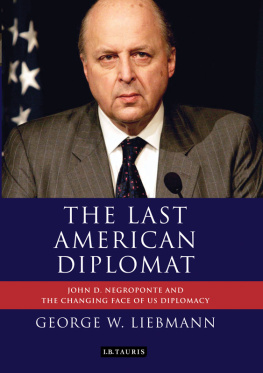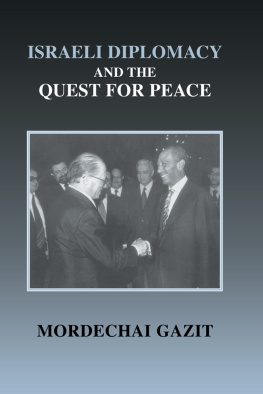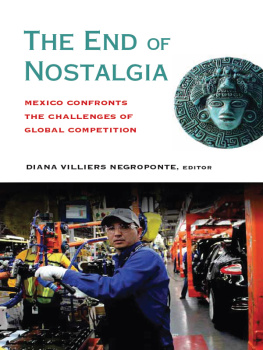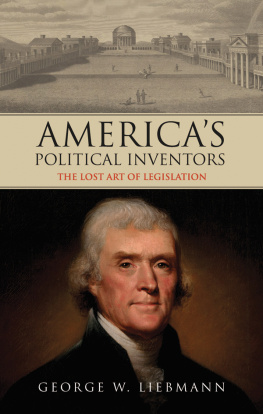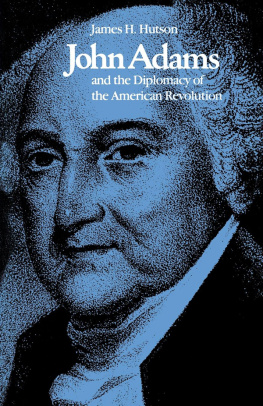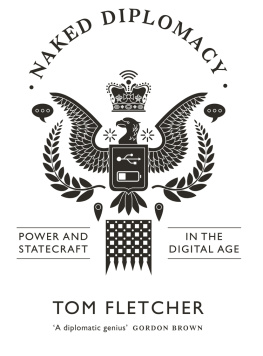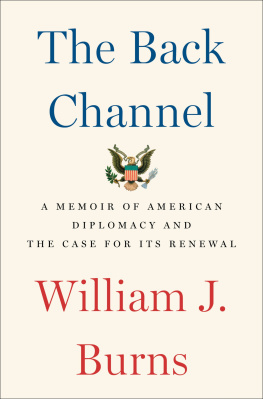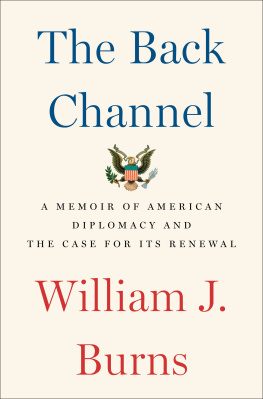George W. Liebmann is a lawyer and historian specializing in American and international diplomatic history. His publications include Diplomacy between the Wars: Five Diplomats and the Shaping of the Modern World (I.B.Tauris, 2008).
The Last American Diplomat is a true masterpiece, a book far above the standards and the contents of the great majority of the dozens of, often ephemeral, works published each year about the theme and themes of American foreign policy. It is a most detailed and finely written to me about the career and the character of John D. Negroponte, an American whose name is known or remembered, alas, by few who ought to. But there is more to it. George Liebmann has written excellent biographies of men and diplomats who had incarnated the standards of what might be called necessarily imprecisely, but essentially truly the old diplomacy. This study of Negroponte is a prime example of Liebmanns historical philosophy as well as his architectural examination of his protagonists public career.
John Lukacs, American Historian, author of The Future of History
So much more than a biography, this fascinating new book by George Liebmann is a major contribution to diplomatic history. Through the lens of John Negropontes remarkable career, the reader gains arresting insights into the events and personalities that shaped US foreign policy in the Cold War and post-Cold War periods.
Mary Ann Glendon, Learned Hand Professor of Law, Harvard University, Former US Ambassador to the Holy See
THE LAST AMERICAN
DIPLOMAT
JOHN D. NEGROPONTE AND THE
CHANGING FACE OF US DIPLOMACY
GEORGE W. LIEBMANN
Published in 2012 by I.B.Tauris & Co Ltd
6 Salem Road, London W2 4BU
175 Fifth Avenue, New York NY 10010
www.ibtauris.com
Distributed in the United States and Canada
Exclusively by Palgrave Macmillan
175 Fifth Avenue, New York NY 10010
Copyright 2012 George W. Liebmann
The right of George W. Liebmann to be identified as the author of this work has been asserted by him in accordance with the Copyright, Designs and Patent Act 1988.
All rights reserved. Except for brief quotations in a review, this book, or any part thereof, may not be reproduced, stored in or introduced into a retrieval system, or transmitted, in any form or by any means, electronic, mechanical, photocopying, recording or otherwise, without the prior written permission of the publisher.
International Library of Twentieth Century History: 45
ISBN: 978 1 84885 869 5
eISBN: 978 0 85773 040 4
A full CIP record for this book is available from the British Library
A full CIP record is available from the Library of Congress
Library of Congress Catalog Card Number: available
For the members, past and present, of the
United States Foreign Service
EPIGRAPH
As life is action and passion, it is required of a man that he should share the action and passion of his time, at the peril of being judged not to have lived.
Oliver Wendell Holmes, Jr.
Are you a member of the Society of Jobbists or do you know that guild? If not, let me tell you of it. Its an honest craft, gives good measure for its wages, and undertakes only those jobs which the members can do in proper workmanlike fashion. It demands right quality, better than the market will pass.
Learned Hand
CONTENTS
LIST OF ILLUSTRATIONS
(William Safire, Before the Fall: An Inside View of the Pre-Watergate White House, Doubleday, 2005)
(JDN)
(JDN)
(National Archives)
(US Department of State, National Security Archive, George Washington University)
(Sewall Menzel, Dictators, Drugs and Revolution: Cold War Campaigning in Latin America 19651989, AuthorHouse, 2006)
(JDN)
(JDN)
(JDN)
(JDN)
(JDN)
(American Academy of Achievement)
(GWL)
(JDN)
(Charles Pepper, Everyday Life in Washington with Pen and Camera (Louis Klopsch, 1900)
(The Washington Post)
(JDN)
PREFACE
This is a book about a boyhood friend whose life has followed a very different trajectory from my own and who possesses attributes, including an infinite capacity to suffer fools gladly and to survive and ascend in large organizations, in which I have always felt myself to be deficient. It is in essence a book about an insider by an outsider, albeit an outsider who has sometimes been successful in influencing large events. It is a book about maturationthe John Negroponte of 1960 is not the John Negroponte of 2010about the maturation not only of a man but of a nation, for the bombast of President John F. Kennedys inaugural speech would be inconceivable today, even from our last president. It is a book about a nation that has been mugged by reality, which no longer occupies, as it did in 1960, the position of an undamaged economic colossus amid other nations struggling to recover from a war in which they had bombed one another into smithereens. If our national leadership still proclaims American exceptionalism, the best of our diplomats know better. No president has expressed for America what Bonar Law, British statesman and prime minister, said of Britain in 1922: we cannot alone be the policeman of the world, but the time is not distant when one will. Recent events, including some of those recounted here, have taught us that our vast mechanical superiority in the technology of warin ballistic and cruise missiles, bunker-busting bombs, and the likeis almost as irrelevant to the nature of modern conflicts as the possession of thousands of nuclear weapons was to the postcolonial wars of the 1950s, 1960s, and 1970s. Technology can provide immunity from invasion, although not from destruction, but it cannot provide the means to dominate and occupy. In that respect, our time has seen the democratization of war. War, in its modern forms, is dominated by infantry and by the morale of infantry. In an age of improvised explosive devices, the defense has the same advantage that it was given by the machine guns and trenches of World War I. Military collapses, when they occur, are the product of ideas and examples, including economic examples. A mercantile republic, with great absorptive capacity and a constitution framed with due regard for human frailty and the realities of human nature should feel itself advantaged by this change; it is a mark of the failure of our political leadership that it does not.
Until very recent years, I interested myself only in domestic policy. My earlier writings deal with the uses and possibilities of sublocal institutions; the appropriate role of the law, seen as a branch of mechanics and not of theology, in structuring orderly change, and with the process of social reform as seen in the lives of six mostly forgotten social reformers. Recent events, however, with their impact on the possibilities of rational reform, have led me to write about foreign policy, first with a book of biographical sketches of five interwar diplomats who displayed in their thought and work professionalism and intellectual autonomy rare in their successors. Second, this book, about a contemporary diplomat, makes many of the same points in a different way. It is a book about a bureaucratic politician, but one who at some points has been a risk taker; a man who has sometimes made hard choices but otherwise whose characteristic weapon has been the gentle nudge.


